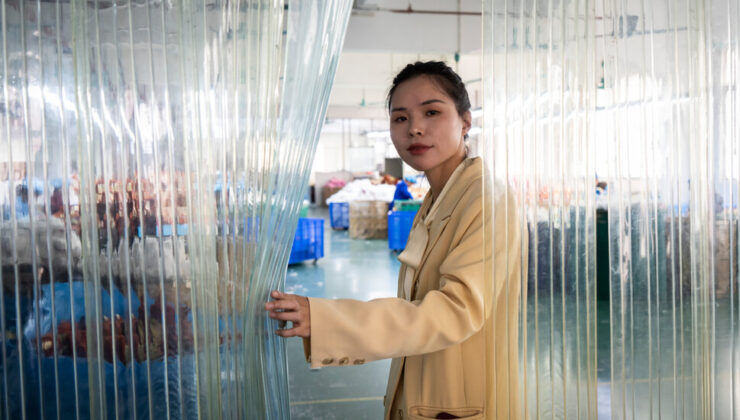

In a bustling factory in southern China, women in blue cloth hairnets meticulously sew the final stitches on plush pink piggies and vibrant orange stuffed foxes, before adding them to towering piles. These charming toys will soon be boxed and dispatched to the United States, where a significant portion of Maria Liao’s clientele resides.
Despite the lively production line, the factory hums more quietly than usual. This year, orders have seen a decline as Ms. Liao’s customers exhibit caution due to the series of tariffs President Trump has imposed on Chinese imports. A new wave of tariffs is anticipated this week, further complicating the landscape for small American businesses reliant on Chinese factories for their designed and sold products.
The repercussions of these tariffs are felt deeply across the ocean, affecting two-story factories like Ms. Liao’s Dongguan Yarunli Toys.
“We feel powerless,” expressed Ms. Liao, 33, who co-manages the factory with her elder brother. “The outlook for the next quarter remains uncertain.”
Ms. Liao is one among the millions in China who cut, sew, build, and assemble the toys, clothing, tools, and cars that form a part of American daily life. Their labor enables companies to swiftly and affordably deliver products to U.S. households.
China, maintaining a formidable $1 trillion trade surplus, continues to be a global manufacturing leader.
ENGLİSH
4 gün önceSİGORTA
4 gün önceSİGORTA
4 gün önceSİGORTA
7 gün önceSİGORTA
9 gün önceSİGORTA
9 gün önceDÜNYA
18 gün önce 1
Elon Musk’s Father: “Admiring Putin is Only Natural”
11523 kez okundu
1
Elon Musk’s Father: “Admiring Putin is Only Natural”
11523 kez okundu
 2
xAI’s Grok Chatbot Introduces Memory Feature to Rival ChatGPT and Google Gemini
10507 kez okundu
2
xAI’s Grok Chatbot Introduces Memory Feature to Rival ChatGPT and Google Gemini
10507 kez okundu
 3
Minnesota’s Proposed Lifeline Auto Insurance Program
9452 kez okundu
3
Minnesota’s Proposed Lifeline Auto Insurance Program
9452 kez okundu
 4
Introducing Vivo Y300 Pro+: A Blend of Power and Affordability
7394 kez okundu
4
Introducing Vivo Y300 Pro+: A Blend of Power and Affordability
7394 kez okundu
 5
What’s the best car insurance for seniors?
6050 kez okundu
5
What’s the best car insurance for seniors?
6050 kez okundu
Veri politikasındaki amaçlarla sınırlı ve mevzuata uygun şekilde çerez konumlandırmaktayız. Detaylar için veri politikamızı inceleyebilirsiniz.